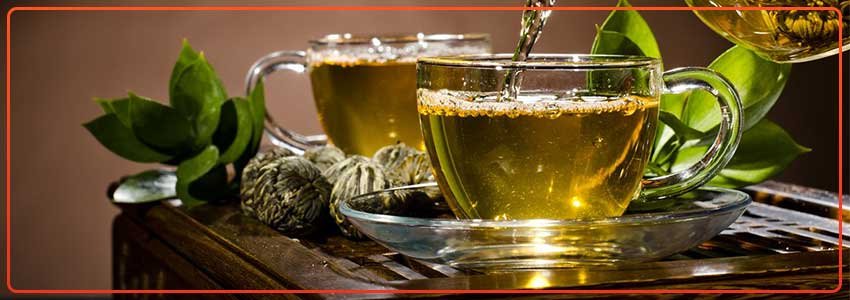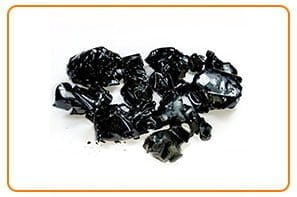Are you a green tea enthusiast who’s curious about the caffeine content of your favorite beverage? You’re not alone! Many people enjoy the potential health benefits of green tea, but are unsure if it contains caffeine. In this post, we’ll answer the question: does green tea have caffeine? By the end, you’ll have a clear understanding of the caffeine content of green tea, and how it may affect your health and wellbeing.
What is Green Tea
Green tea is a popular beverage that originated in China and has been enjoyed for centuries. It is made from the leaves of the Camellia sinensis plant, which are processed differently than black tea to preserve the natural compounds found in the leaves.
Green tea contains several components that have been linked to potential health benefits. One of these components is called catechins, which are a type of antioxidant that can help to protect the body from damage caused by free radicals. Another important component of green tea is flavonoids, which are plant-based compounds that have been shown to have anti-inflammatory and anti-cancer properties.
Studies have suggested that drinking green tea may have a variety of health benefits, such as reducing the risk of cardiovascular disease, diabetes, and certain types of cancer. Green tea has also been linked to improved brain function and may even help with weight loss.
Overall, green tea is a healthy beverage that is enjoyed by millions of people around the world. Its potential health benefits make it a great choice for those who are looking for a nutritious alternative to sugary drinks or other beverages.
What is Caffeine?
Caffeine is a natural stimulant that is found in a variety of beverages and foods, including coffee, tea, chocolate, and energy drinks. When consumed, caffeine is quickly absorbed into the bloodstream and travels to the brain, where it blocks the activity of a neurotransmitter called adenosine. This leads to increased alertness and concentration, as well as a temporary reduction in feelings of tiredness.
Caffeine is typically consumed in the form of coffee and tea, which are two of the most popular sources of caffeine in the world. In coffee, the caffeine content can vary depending on the type of bean, roast level, and brewing method. For example, a cup of brewed coffee can contain anywhere from 70 to 140 milligrams of caffeine, depending on the factors mentioned above. In tea, the caffeine content is typically lower than in coffee, but can still vary depending on the type of tea, the brewing method, and other factors.
It’s worth noting that caffeine can have both positive and negative effects on the body, depending on the amount consumed and the individual’s sensitivity to the substance. While moderate caffeine intake has been linked to improved cognitive function and decreased risk of certain diseases, excessive caffeine consumption can lead to negative effects such as anxiety, insomnia, and digestive issues. As with all things, moderation is key when it comes to caffeine consumption.
Does Green Tea Have Caffeine
Yes, green tea does contain caffeine. However, the amount of caffeine found in green tea can vary depending on a variety of factors, such as the type of tea, the brewing time, and the water temperature used.
On average, a cup of green tea contains around 25 milligrams of caffeine. This is significantly less than a cup of coffee, which can contain anywhere from 70 to 140 milligrams of caffeine, depending on the factors mentioned earlier. However, it’s important to note that some types of green tea can contain higher amounts of caffeine, such as matcha, which can contain up to 70 milligrams of caffeine per cup.
Factors such as brewing time and water temperature can also affect the caffeine content of green tea. For example, steeping green tea for longer periods of time or using hotter water can lead to higher levels of caffeine. Conversely, using cooler water or shorter steeping times can result in lower caffeine content.
Overall, if you’re looking to reduce your caffeine intake, green tea can be a great option. While it does contain caffeine, the amount is generally lower than other sources of caffeine, and can be adjusted depending on how you prepare your tea.
How Much Caffeine is in Green Tea
One of the most common questions people have about green tea is how much caffeine it contains. The answer to this question is that it depends on several factors. On average, an eight-ounce cup of green tea contains between 20-45 milligrams of caffeine. However, some types of green tea can have significantly more or less caffeine, depending on factors such as the time of harvest and the brewing method.
For example, matcha green tea is a concentrated form of green tea that contains higher levels of caffeine than other types of green tea. Similarly, green tea made from younger leaves and buds contains more caffeine than tea made from older leaves. Additionally, the brewing method and water temperature can affect the caffeine content of green tea. Brewing green tea for a shorter period or using cooler water can result in a lower caffeine content.
Despite the potential variations in caffeine content, green tea generally contains less caffeine than other commonly consumed beverages like coffee and energy drinks. An eight-ounce cup of coffee, for example, can contain anywhere from 70 to 200 milligrams of caffeine. Compared to these sources, green tea’s caffeine content is relatively modest, making it a popular choice for people looking to moderate their caffeine intake.
Effects of Caffeine in Green Tea
While caffeine in green tea is generally considered safe and can offer a variety of potential benefits, it’s important to be mindful of how much caffeine you’re consuming and any potential negative effects it may have on your body.
Some potential benefits of caffeine in green tea include improved cognitive function, increased alertness, and a temporary boost in energy. Additionally, green tea is rich in antioxidants and other beneficial compounds that can promote overall health and well-being.
However, consuming too much caffeine can lead to negative effects such as anxiety, insomnia, and digestive issues. It’s also worth noting that some people may be more sensitive to caffeine than others, and may need to be especially mindful of their caffeine intake.
If you’re looking to enjoy green tea in a healthy way, it’s important to be mindful of your caffeine intake and to practice moderation. This can include opting for decaf or low-caffeine green tea options, limiting your overall caffeine intake to no more than 400 milligrams per day (the equivalent of around four cups of coffee), and paying attention to how your body responds to caffeine.
In addition to moderation, there are a variety of other ways to enjoy green tea and reap its potential health benefits. This can include trying different types of green tea, such as matcha or sencha, experimenting with different brewing methods, and incorporating green tea into other healthy habits such as exercise and a balanced diet.
Conclusion
In conclusion, green tea does contain caffeine, although the amount can vary depending on several factors such as the type of tea and the brewing method used. While caffeine in green tea can offer potential benefits such as improved cognitive function and increased alertness, it’s important to be mindful of how much caffeine you’re consuming and any potential negative effects it may have on your body.
By practicing moderation and experimenting with different types of green tea and brewing methods, you can enjoy green tea as a healthy and flavorful beverage. Additionally, incorporating green tea into other healthy habits such as exercise and a balanced diet can further enhance its potential health benefits.
If you’re curious about how green tea can fit into your lifestyle, we encourage you to do further research and experimentation. Whether you’re a longtime fan of green tea or just discovering its potential benefits, there’s always more to learn and explore about this versatile and fascinating beverage.
FAQS
Does all green tea have caffeine?
Yes, all varieties of green tea contain caffeine, although the amount can vary depending on factors such as the type of tea and the brewing method used.
How much caffeine is in green tea compared to coffee?
Generally, green tea contains less caffeine than coffee, although the exact amount can vary depending on the type of tea and how it’s brewed. On average, a cup of green tea contains around 25-35 mg of caffeine, while a cup of coffee can contain anywhere from 95-200 mg of caffeine.
Does decaffeinated green tea still contain caffeine?
While decaffeinated green tea is processed to remove some of the caffeine, it still contains trace amounts of caffeine. However, the amount is significantly lower than regular green tea.
Does the caffeine in green tea affect sleep?
Consuming caffeine in the afternoon or evening can potentially affect sleep, so it’s best to limit your intake later in the day if you’re sensitive to caffeine.
Does green tea have other stimulants besides caffeine?
In addition to caffeine, green tea also contains theanine, an amino acid that can promote relaxation and reduce stress.
Is caffeine in green tea bad for you?
In moderation, caffeine in green tea is generally considered safe and can even offer potential health benefits. However, consuming too much caffeine can lead to negative effects such as anxiety, insomnia, and digestive issues.
How much green tea can you safely consume in a day?
Most health experts recommend consuming no more than 3-4 cups of green tea per day to stay within safe caffeine limits.
Can green tea boost metabolism?
Green tea has been shown to have a slight effect on metabolism, which can potentially lead to increased fat burning and weight loss.
Does the quality of green tea affect caffeine content?
Yes, the quality of green tea and the way it’s processed can affect its caffeine content. For example, higher quality teas may contain more caffeine than lower quality teas.
Can green tea be consumed before exercise for a performance boost?
Green tea’s caffeine and antioxidant content may offer potential performance benefits when consumed before exercise, although more research is needed to fully understand its effects.
Can you get addicted to caffeine in green tea?
Caffeine can be addictive, although it’s less addictive than other substances such as nicotine. If you find yourself dependent on caffeine in green tea, it may be helpful to gradually reduce your intake over time.



